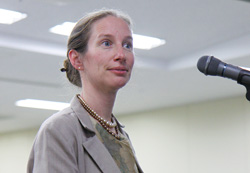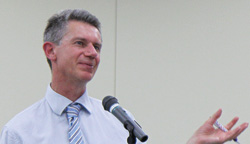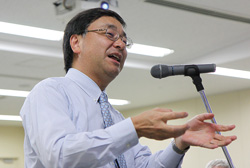In the first session, the initial step of many immune responses, i.e. the interaction between T cells and antigen-presenting cells (APC), was discussed. Since dendritic cells (DCs) are potent antigen-presenting cells, it is important to understand how their development and function are regulated. RCAI members, Sato and Kaisho described their studies on the molecular basis of DC development, the importance of DC-mediated immune regulation and possible clinical application of DCs. Specifically, they presented data about the discovery of a new transcription factor important for DC development, novel immune regulation by specific subset of DCs and establishment of DC-mediated immunotherapy for cancers. T cells are stimulated not only by DCs but also by macrophages. Macrophage-mediated immune regulation was discussed by M. Tanaka (RCAI) and La Flamme (NZ, photo1). The discussions on APCs were extended to T cell-mediated immune regulation by Painter, Hermans and Bogle (NZ); how the function of T cells can be regulated and what is the most effective strategy for T cell regulation by Rod Dunbar (NZ, photo2). From the clinical point of view, the molecular basis and possible treatment of allergic disorders were intensively discussed by Nakayama (Chiba Univ., photo3), Okamoto (Chiba Univ.) and Fujii (RCAI). Last, on the agenda was a discussion of bacterial pathogenesis and vaccine development. (photo4)
During this meeting, there were constructive and valuable exchanges on both sides. Based on this interaction, Hook (NZ) initiated the preparation of collaborative studies with Ishii (RCAI). In addition, Hon. Dr. Mapp, Minister for NZ MoRST (photo5) visited RIKEN Yokohama Institute and RCAI on Oct. 13, 2010. Thus, this joint meeting successfully fulfilled its aims, and hopefully the collaborations between NZ and Japan will result in great contributions to basic science and translational research in immunology.
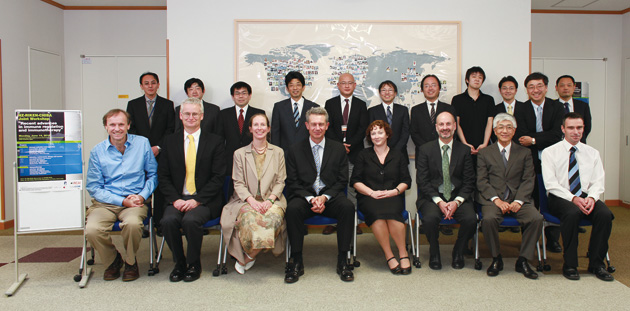
(photo4)
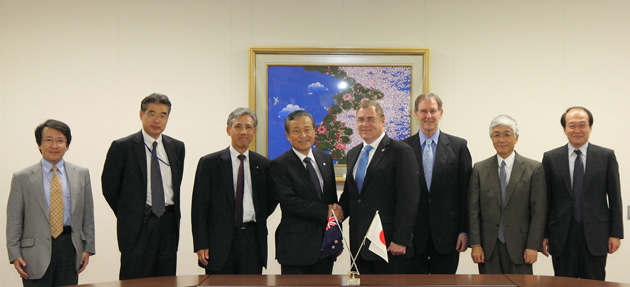
(photo5)From left; Shigeyuki Yokoyama (Director, RIKEN Systems and Structural Biology Center), Hiroshi Ikukawa (Director, RIKEN Yokohama Institute Promotion Division), Kenji Okuma (Director, RIKEN Yokohama Institute), Kenji Takeda (RIKEN Executive Director), Hon. Dr. Wayne Mapp (Minister for Research Science and Technology, New Zealand), Ian Kennedy (New Zealand Ambassador to Japan), Masaru Taniguchi (Director, RIKEN RCAI) and Takashi Saito (Deputy Director, RIKEN RCAI)

